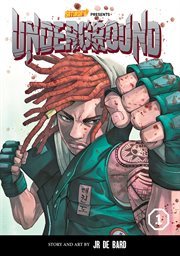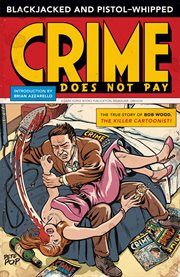Review by Booklist Review
In his deeply moving and heartfelt coming-of-age graphic memoir, Afro-punk artist Spooner does an exceptional job at capturing his complicated and challenging teenage years growing up in Apple Valley, CA, during the late 1980s. Fans of this subgenre will find some familiar themes as Spooner details the struggles he faced fitting in, finding love, dealing with his parent's divorce, and figuring out his identity. But despite those familiarities, this is more extraordinary and unique; Spooner's thoughtful consideration regarding the role that his race and racism had in shaping his life is noteworthy, and his reflection on his exploration with and embracing of the punk rock culture as a Black teen is something that has rarely been seen in coming-of-age graphic novels. This is a must-read for those interested in reading texts that focus on the complexity of race and race relations in the U.S. Supported by expressive, well-drawn art and a commitment to sharing details about the Black roots of punk rock, this is a noteworthy coming-of-age graphic novel that many will find eye-opening and appealing.
From Booklist, Copyright (c) American Library Association. Used with permission.
Review by Publisher's Weekly Review
Spooner, the filmmaker behind the Afro-Punk documentary and festivals, debuts with a graphic memoir as abrasive and revelatory as his chosen music. Against a setting of the 1990s-era desolate desert landscape of Apple Valley, Calif., Spooner replays key notes of his adolescence. His predominantly poor and white hometown simmers with hostility: bikers throw insults and skinheads infiltrate the scene, targeting the multiracial friendship circle with whom he forges his punk identity and sound. But he's empowered by learning that "Rock 'n' roll is a Black American Legacy. Punk rock is Black music." He's also desperate for a girlfriend--the fact that his crushes are always already taken gets hilariously drawn, with the word boyfriend literally falling from the top of the page and demolishing him. He's forthright about the fraught relationship with his devoted but sometimes clueless white mother, his absent Black father (a St. Lucian former champion bodybuilder aka "Mr. America to everyone but your son"), as well as realizing his own light-skinned privilege in relation to other Black friends. Lyrics from influential songs (such as "White Minority" by Black Flag) spring from panels in dynamic word balloons, punctuating emotional scenes; the story culminates in dual tragedies and Spooner's escape from the dust. The realistic, digitally drawn art is loose-lined, matching the urgency of the soundtrack. Much like Ghost World, this grabbing, angsty coming-of-age tale offers a sidewalk view of a creative subculture. It's also a poignant ode to the power of music to fill voids left by family and circumstance, with provocations thrumming on race and identity that sound out like a smashed guitar. Agent: PJ Mark, Janklow & Nesbit Assoc. (May)
(c) Copyright PWxyz, LLC. All rights reserved
Review by Kirkus Book Review
A sometimes bitter and brittle, always heartfelt memoir of growing up as a Black punk rocker in rural California. "Apple Valley, California, like most of small town America, sucks." So writes Spooner in this probing graphic memoir. The high desert of the title is a place where "you can count on dirt, desolation, and despair." As the author reveals, you can also count on the anomie that leads some kids to drugs, some to suicide, some to neo-Nazism. His White mother, "raising a black son on her own," coped as best she could to protect the young man. There was plenty of harm to face, with an absence of role models and plenty of reasons to keep one's head down to avoid the inevitable high school bullying. Spooner found solace in punk rock and its accouterments--mohawk haircut, combat boots, etc.--all of which only drew more attention to him. There weren't many role models in punk, either, for a young man of color, even though bands like Black Flag had "two tone" and minority members--all good reason to found a punk band of his own. Spooner is a discerning student of his own past and the movement he joined. As he notes, punk was steeped in politics, especially of the intersectional sort that rejected racism, sexism, homophobia, and Reagan-era retrograde culture. "Punk positioned me to listen," he writes. A sojourn in New York to visit his father, an award-winning professional bodybuilder from St. Lucia, occasioned an encounter with even more political punks, to say nothing of Joey Ramone, and helped him launch a number of zines as well as a record label. "This is what punk inspired," he writes at the close of his eloquent latter-day rejoinder to Chuck Klosterman's Fargo Rock City. A lively, inspirational tale that will point young readers toward art, music, and resistance of their own. Copyright (c) Kirkus Reviews, used with permission.
Copyright (c) Kirkus Reviews, used with permission.


